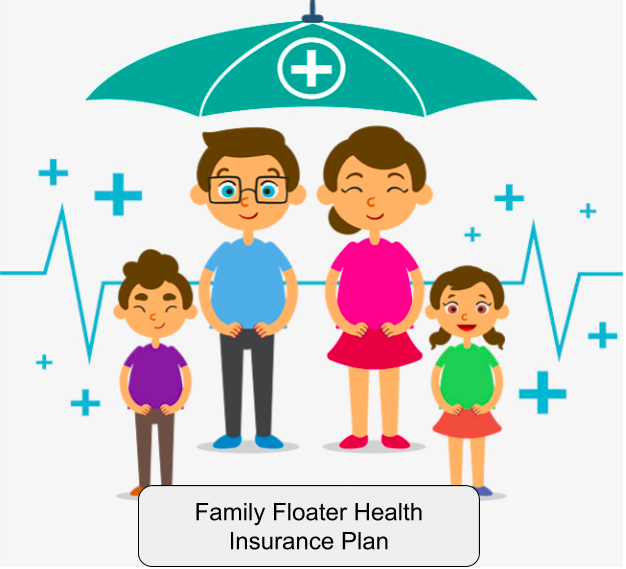
A family floater is a health insurance plan that stretches out the insurance for the whole family rather than just a person. A family floater plan brings everyone in the family under an umbrella. Being secured under a single cover, each member of the family gets benefits under a bigger pool.
Which cover to buy? Individual or Family cover
Every insurance company offers these two covers in its health insurance products, and there are pros and cons in both of these covers. Let us compare the benefits and drawbacks of these covers so that you can take a better and wise decision regarding your purchase of a health insurance policy.
There are two types of family floater policies:
- Medical Insurance: This plan reimburses the cost of hospitalization (cashless treatment); it also provides a list of specific illnesses which are covered.
- Critical Illness: In case of diagnosis of a critical illness, this type of family floater policy pays out a lump sum amount to the policyholder.
[table id=76 /]
Advantages of Family Floater Health Insurance
- A family floater health insurance is made for families.
- It helps you avoid the task of maintaining and keeping track of several health insurance policies.
- Family floater health insurance has options with higher sum insured than individual health plans; hence, the coverage is higher.
- Family floater plans cover the individual, spouse, and children.
- Some family floater plans also have provisions to cover dependent parents, siblings, and parents-in-law.
Points to note:
- The premium for a floater is based on the age of the eldest member. Thus it is cheaper when the age of the members covered are lower.
- The policy can be renewed until any member of the policy reaches a certain age, which is mostly either 60 – 65 years. So remember when a family member reaches that age, the floater policy lapses.
- Yes, the policy includes children, but only to a certain age; beyond that, they are considered adults and have to get their own health insurance policies.
How to choose the best cover?
- The more, the merrier: Choose “sum assured” that covers the needs of the entire family.
- Think wisely: The family floater lapses at a certain age (60-65 years). Which also means the premium for including senior citizens in the policy is quite high. However, few companies offer lifelong renewal, so do research.
- An eye for detail: Pick policies that cover pre- and post-hospitalization, daycare expenses, maternity costs, etc. If any add-ons are required, clarify the same.
- Look out for options: Many companies have cashless treatment facilities. Getting a list of network hospitals will ensure there are no problems later.
Thus, buying a family floater plan is a better strategy for a young family. However, from an exterior, all health insurance plans look alike, which could be easily misleading. So take time; first, understand your family needs and your financial barriers & situations. Do not hesitate to seek help from experts, internet or relatives/ friends who have already take health insurance plans. Remember…
Awareness is the key factor to make a sound decision.



























